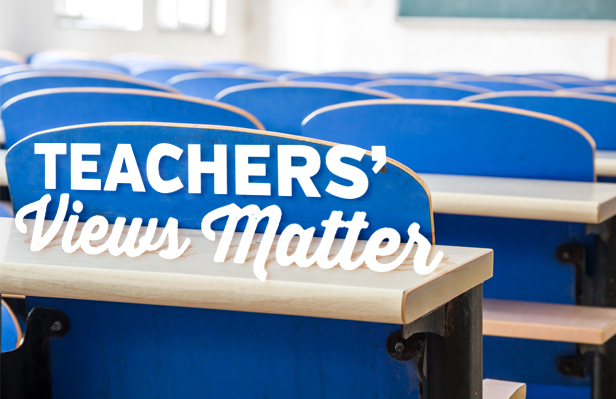Commentary

Teachers’ Views Matter
Note: This guest commentary by Chester County public school teacher Michelle Geist was published in the Delaware County Daily Times, The Intelligencer of Doylestown, and the Daily Local News of Chester County.
As a teacher, I treasure the opportunity to help kids who learn differently succeed both academically and in their social lives. I like to think that the students I’ve been privileged to work with have a better understanding of the world around them and are set on a trajectory toward a more fulfilling and productive life. Some might say those are lofty goals, but, to me, it just comes with the territory of being a special educator.
I’ve been teaching in Chester County schools for three years and am currently an Autistic Support Teacher. Last year, I addressed some workplace concerns with my district union, but instead of helping, the union treated me like my views didn’t matter: I “chose this profession” and little if anything could come of my ideas.
I didn’t get into special education because I was afraid of working hard. But, over the years, I’ve developed some ideas that could keep good teachers from getting burnt out—which happens all too often and helps no one. My fellow teachers backed my suggestions, but the union seemed to have other priorities.
As you might expect, this made me skeptical that my union was really looking out for me and led me to question whether I wanted to remain a member at all.
Historically, teachers’ unions like the National Education Association (NEA) played an important role in advocating for civil rights and for a woman’s right to vote. The NEA and its state counterpart the Pennsylvania State Education Association (PSEA) were founded as vital institutions for supporting teachers, parents, and students.
But, in my experience, they left those noble roles behind long ago and have become power-seeking political organizations more concerned with their own bottom lines than with helping teachers like me do their jobs more effectively.
Even with my healthy skepticism, I was shocked to learn that these unions are using teachers’ dues money for partisan political activity on a grand scale. For example, the PSEA projected more than $7 million in political spending from members’ dues just this year. On top of that, the NEA is devoting $10 million in teachers’ dues money to influence national elections. This money can’t be given to candidates, but it buys political ads and funds other political organizations.
And that doesn’t even count millions in voluntary contributions made to teachers’ union political action committees.
Learning this has only confirmed that I was right to opt out of union membership. But in Pennsylvania, it’s not that simple. I now have to pay those teachers’ unions a “fair share” fee—for representation I’m unhappy with—or else I lose my job.
But government unions are private organizations and can support the causes they want, right? Again, in Pennsylvania, it’s not that simple.
Government unions, like PSEA and NEA, actually have a special exemption from the law that allows them to use taxpayer-funded payroll systems to collect money earmarked for politics. That means, not only do I have to help fund these unions’ self-serving political agendas—taxpayers like you do, too.
If you followed the recent primary elections, you may have noticed that state Senator Leanna Washington lost her party’s nomination. Why? She’s been accused of using taxpayer-paid staff to collect money for her political campaign and faces fines and jail-time if convicted.
But teachers’ unions and other government unions do essentially the same thing by using public payroll systems to collect political dues and campaign money. Why don’t the same laws that Sen. Washington allegedly violated apply to them?
From my vantage point on the frontlines of Pennsylvania’s public schools, I see teachers’ unions with money to spend and power to wield who are unresponsive to the very people they’re supposed to represent. Giving them special treatment that boosts their political ambitions is not the way to make them pay more attention to local education problems.
That’s why I’m joining with other public school teachers around the state and asking Harrisburg to give us our voices back by passing legislation called paycheck protection. It’s a simple, two-page reform that tells government unions that teachers’—and other public employees’—views do matter, and that unions must play by the same rules as the rest of us.
# # #
Michelle Geist is a Chester County Autistic Support Teacher.